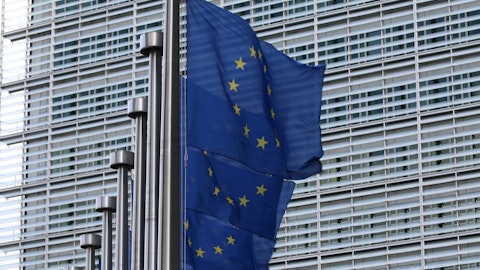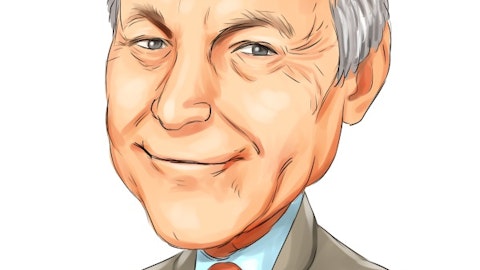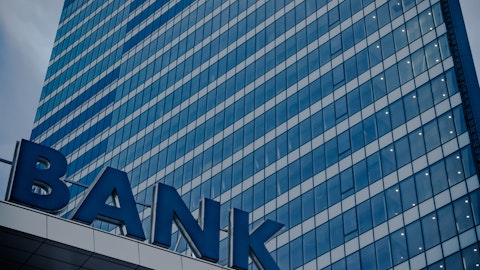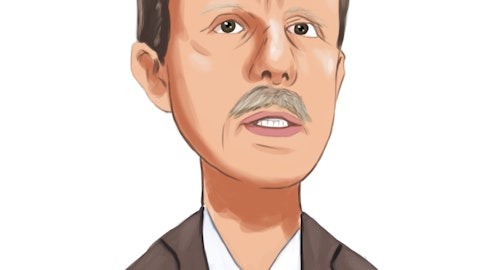Third Avenue Management, an investment management firm, published its “Value Fund” third quarter 2021 investor letter – a copy of which can be downloaded here. A portfolio return of -1.89% was recorded by the fund for the third quarter of 2021, compared to the MSCI World Index, which returned 0.09% for the same period. You can take a look at the fund’s top 5 holdings to have an idea about their best picks for 2021.
Third Avenue Management, in its Q3 2021 investor letter, mentioned Deutsche Bank Aktiengesellschaft (NYSE: DB) and discussed its stance on the firm. Deutsche Bank Aktiengesellschaft is a Frankfurt, Germany-based investment banking company with a $27.5 billion market capitalization. DB delivered a 20.46% return since the beginning of the year, while its 12-month returns are up by 31.83%. The stock closed at $13.13 per share on November 2, 2021.
Here is what Third Avenue Management has to say about Deutsche Bank Aktiengesellschaft in its Q3 2021 investor letter:
“Deutsche Bank AG (4.5% portfolio weight) – Similarly, Deutsche Bank has in recent years undertaken profound cost cutting initiatives, albeit, in Deutsche’s case, as a result of scandal, business underperformance and a need to deleverage. Deutsche Bank, and other investment banks with large fixed income trading operations, clearly benefited from the pandemic in 2020 as a result of unusually large fixed income trading volumes and market volatility. This is one of the primary arguments for having trading operations alongside more traditional banking and asset management businesses—i.e., that their business performances are not correlated and strong trading performance can, at times, offset challenges in other parts of the business. And times are still challenging for Deutsche’s more traditional corporate and private banking businesses as a result of the interest rate environment. Clearly a higher (or even less negative) German rate environment would help, but it must be said that Germany has to be among the least attractive banking markets in Europe. The industry structure is unique and frustrates the ability of private banks to produce profit, which in turn limits the ability to accumulate capital, making the entire system more fragile than it ought to be. We value Deutsche’s various banking business lines accordingly. But, turning back to things Deutsche can control, it is indisputable that Deutsche, under CEO Christian Sewing, has made considerable progress towards its critical cost cutting, deleveraging and capital accumulation goals. At the outset of our investment in Deutsche, our single largest concern was that the bank’s necessary exit from certain lines of business, along with sizeable headcount reduction in others, could cause clients to seek other relationships with banks offering a full range of services and without any perception of counter-party risk. In a worst case scenario the result could have been an erosion of revenue even faster than the cost reduction, possibly precipitating a downward spiral. As we emerge from the pandemic with Deutsche now far down the road of transformation, and clear evidence that it is regaining market share in various lines of business, the largest risks appear to be behind us. To that point, in recent public comments Deutsche management has indicated that it intends to resume returning excess capital to shareholders in 2022.”

Based on our calculations, Deutsche Bank Aktiengesellschaft (NYSE: DB) was not able to clinch a spot in our list of the 30 Most Popular Stocks Among Hedge Funds. DB was in 20 hedge fund portfolios at the end of the first half of 2021, compared to 16 funds in the previous quarter. Deutsche Bank Aktiengesellschaft (NYSE: DB) delivered a 5.38% return in the past 3 months.
Hedge funds’ reputation as shrewd investors has been tarnished in the last decade as their hedged returns couldn’t keep up with the unhedged returns of the market indices. Our research has shown that hedge funds’ small-cap stock picks managed to beat the market by double digits annually between 1999 and 2016, but the margin of outperformance has been declining in recent years. Nevertheless, we were still able to identify in advance a select group of hedge fund holdings that outperformed the S&P 500 ETFs by 115 percentage points since March 2017 (see the details here). We were also able to identify in advance a select group of hedge fund holdings that underperformed the market by 10 percentage points annually between 2006 and 2017. Interestingly the margin of underperformance of these stocks has been increasing in recent years. Investors who are long the market and short these stocks would have returned more than 27% annually between 2015 and 2017. We have been tracking and sharing the list of these stocks since February 2017 in our quarterly newsletter.
At Insider Monkey, we scour multiple sources to uncover the next great investment idea. Recently we came across a high-growth stock that has tons of hidden assets and is trading at an extremely cheap valuation. We go through lists like the 10 best growth stocks to buy to pick the next Tesla that will deliver a 10x return. Even though we recommend positions in only a tiny fraction of the companies we analyze, we check out as many stocks as we can. We read hedge fund investor letters and listen to stock pitches at hedge fund conferences. You can subscribe to our free daily newsletter on our homepage.
Disclosure: None. This article is originally published at Insider Monkey.





